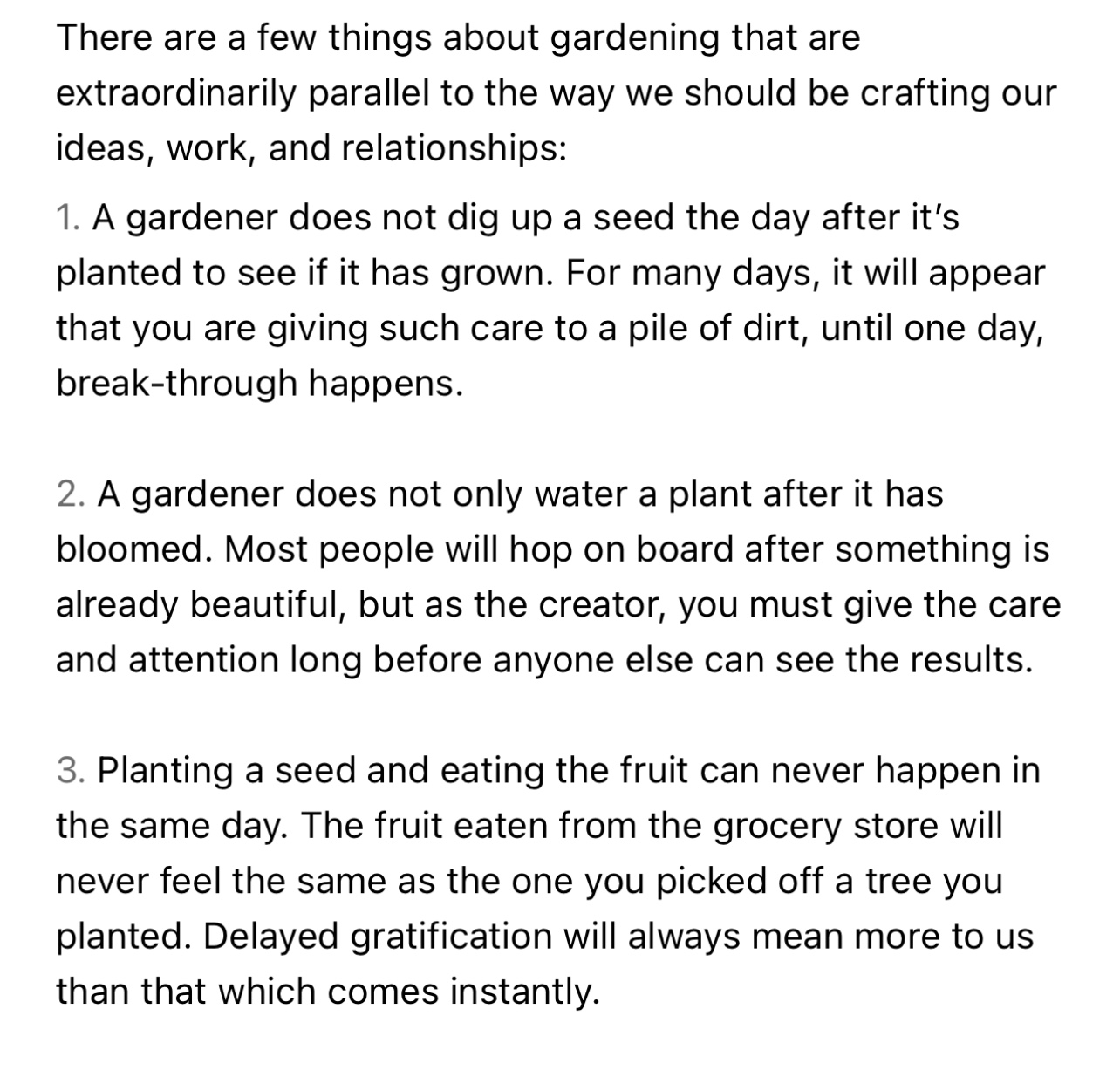building a better garden

There’s something deeply compelling to me about the idea that research—in some form—can be done by anyone with a serious commitment to intellectual inquiry.
Celine Nguyen • research as leisure activity
Books you read are sending you input. Your friends modeling behaviors for you. Newspapers. Tools. People you follow on Twitter. The architecture of a Gothic church beaming serenity into you—that is input too.
At the same time, you are also sending output to other nodes. Now, I am sending these ideas into my pocket notebook, which will send them to... See more
At the same time, you are also sending output to other nodes. Now, I am sending these ideas into my pocket notebook, which will send them to... See more
Henrik Karlsson • First We Shape Our Social Graph; Then It Shapes Us

The edge is in the inputs.
The person who consumes from better sources, gets better thoughts.
The person who asks better questions, gets better answers.
The person who builds better habits, gets better results.
It's not the... See more
James Cleartwitter.comInterestingly, echo chambers also come with benefits, not only for their “residents,” but also for society at large. In fact, they might be essential as markers—and makers—of shared identity and values, places of belonging and comfort. Isn’t any community, by definition, an echo chamber? The House of Beautiful Business certainly is. We have no... See more
🏡 I Don’t Resonate With You
the best gardens have many doors, and few locks.
When you choose whom to follow on Twitter, you’re choosing what types of mindsets and aesthetics to expose yourself to on a regular basis. You’re choosing what types of conversations to have. You’re choosing to be reminded regularly of certain things, and not of others. This is a kind of Programmable attention.
Programmable attention
The idea of research as leisure activity has stayed with me because it seems to describe a kind of intellectual inquiry that comes from idiosyncratic passion and interest. It’s not about the formal credentials. It’s fundamentally about play.
The issue with even this “trend” is that so much of cultural critique today remains observational.
Problematic considering the tiny narrative bubbles we’re each in.
Without layering any quantitative analysis into our stories, fads remain just reactions to reactions. Emptiness.
Liked Tweetstwitter.com